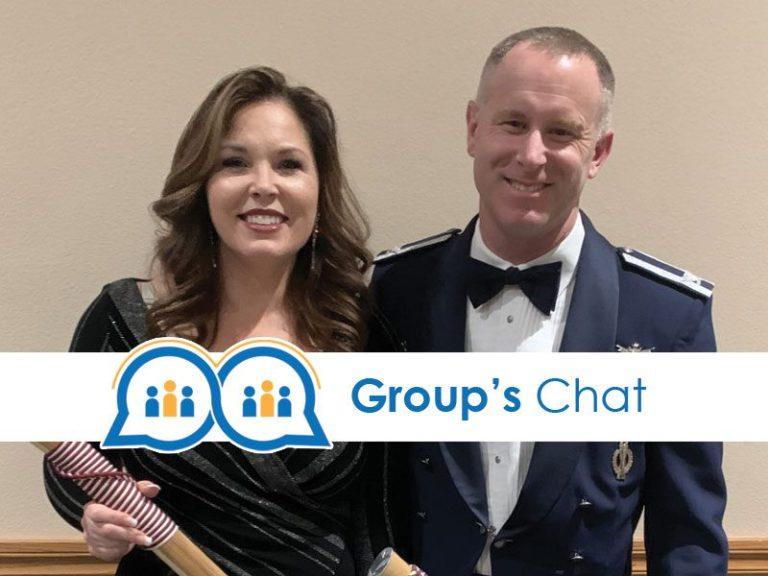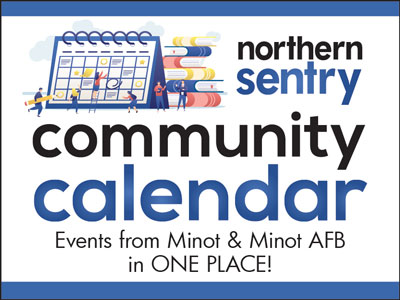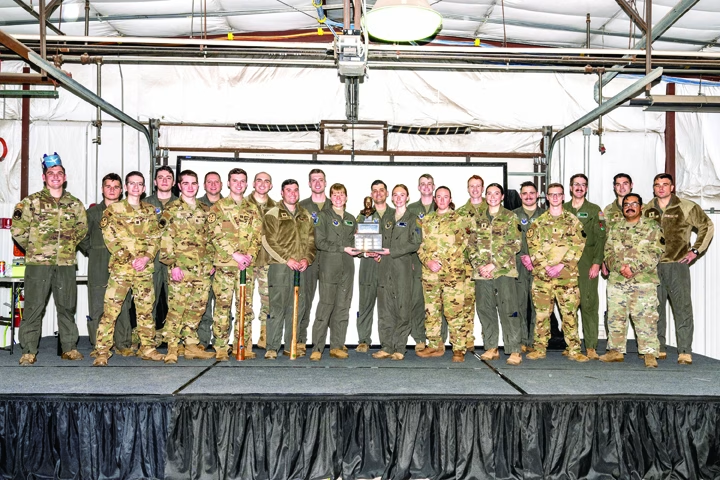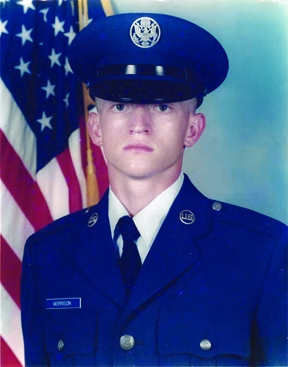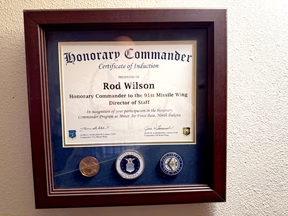In order to understand the essential functions of each group in the 91st Missile Wing and get an in-depth life and career perspective from Team Minot’s senior leaders, the Northern Sentry is running a series of articles talking to the people who understand the most about the importance of their group: the Group Commanders themselves.
The third and final in this series of interviews is Colonel Jimmy Schlabach, Commander, 91st Operation Group. In order to get a more personalized view of the mission, he and his spouse Monica Schlabach agreed to be interviewed and share some of their personal aspects of what the 91st Operations Group is about, why it’s important and what they have both gone through to get to this position in their Air Force journey.
Northern Sentry: Please explain in your own words what the 91 OG does and how each of the squadrons work together.
Col Schlabach: The mission that we have is to conduct operations. The analogy I would use with it is if you think like a NASCAR team. The operations group would be the drivers of the car. We rely on the support of mechanics and the crew chief, pit crew, and all the hundreds of others to get the mission done. What we do is we execute. The 91st Ops Group folks are the ones that are going to be doing the actual command and control, and the launch of the missiles themselves.
We have four squadrons, the 740th, 741st and 742d Missile Squadrons. And then we have the 91st Operational Support Squadron. The “7-4 Club’s” job primarily is to go on to work and operate the missiles. We do that in a three-week rotation. The OSS, they support the [missileers] by making sure of a myriad of logistics are taken care of that those squadrons need.
NS: How has everyone adapted to the relatively new one-week rotation schedule? Do you think they will ever switch back to the 24 hour alert?
Col Schlabach: For the foreseeable future we are going to continue this deployment. In my opinion, the positive tradeoffs vastly outweigh some of the negative, which is why we are continuing. We’ve seen growth and our proficiency in currency which means we are able to focus better on how we execute the mission not only during the week, but during our training cycle too.
NS: What would happen to the base if your group could not perform its functions?
Col Schlabach: We provide one third of the ICBMs here. So essentially, a third of the nuclear deterrent provided by ICBMs would be gone. That would have a major impact on the nation’s ability to operate deterrence.
NS: What is the most important foundation of your command leadership philosophy?
Col Schlabach: Most important foundation is service. Service to the Nation. But my personal philosophy as a commander is service to the Airmen in the 91 OG, to include our civilians as well. In my role, we are focused on the mission while also ensuring we take care of Airmen. So with that in mind trying to balance all of those things [is difficult] because sometimes one tugs a little harder. It’s kind of a push and pull at times but it’s that balance of serving the mission, which we need, but also serving the Airmen.
NS: When in your Air Force career did you realize being a group commander was a goal?
Col Schlabach: I’ll be honest, I never made being a group commander a deliberate goal. At some point I really wanted to be a squadron commander, but after that it was never something that I purposefully drove towards.
NS: So what comes next in your career?
Mrs. Schlabach: We don’t know. We haven’t been informed. We’re just at that stage of life where we are up for anything. We’ve finally matured in our Air Force lives enough to realize that pretty much anything can happen at any time, and we’ll adjust to and enjoy whatever is next.
Col Schlabach: Whatever the AF needs us to do right now is what’s next.
NS: What do you want spouses and families in the 91 OG to be aware of or prepare for when at Minot AFB?
Mrs. Schlabach: I would say that they should be prepared to be surprised. I think sometimes because of the northern location people get an idea that it might not be a preferred base. But having been here before in the beginning of our career and then coming back, we have a unique perspective of seeing what being stationed at Minot did for our family. And now that we have been everywhere, we can really see that people liken Minot to the overseas experiences. They are such a close-knit community.
Col Schlabach: Having come from FE Warren, where you have Ft Collins and Denver, folks tend to dissipate more. You’ll have people live all over. Just the geography, the proximity here, folks tend to congregate together, which builds the family atmosphere. Also, I would like to impart to not take advice from anyone who hasn’t been here.
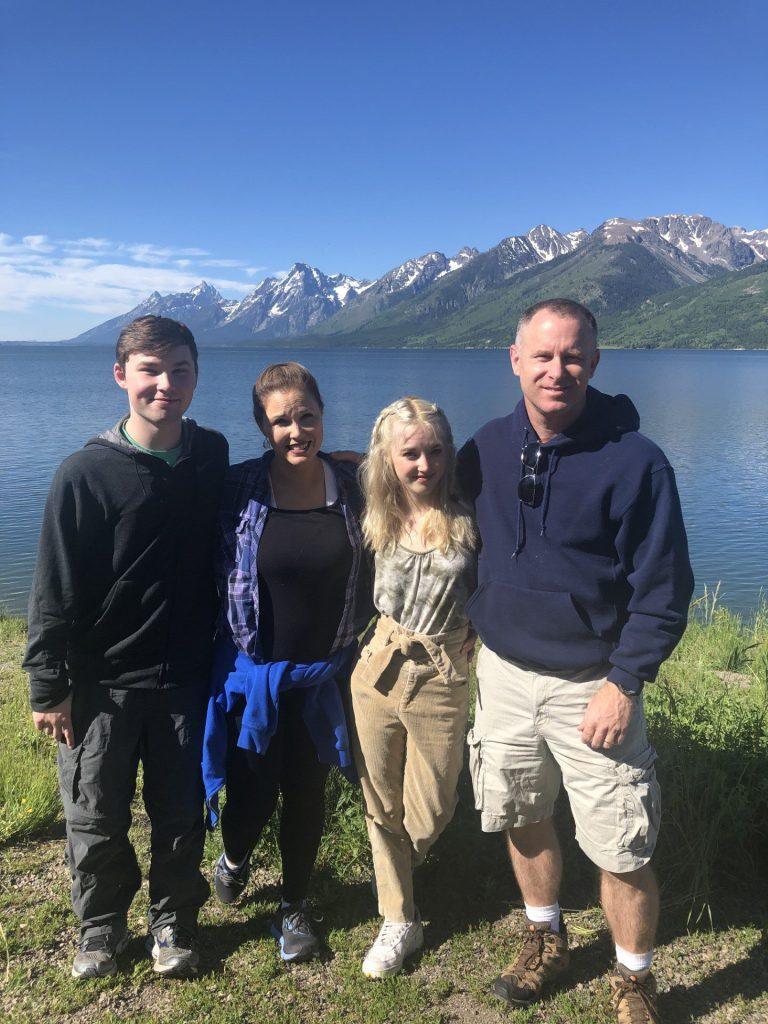
L-R: son Andrew, wife Monica, daughter Lilliana & Col. Jimmy Schlabach.
NS: Looking back on your AF career, what is something that you wish you had known, personally or professionally?
Mrs. Schlabach: I wish that I had worried less about the future. I was very preoccupied with what base we would go to next and what the schools would be like. I put pressure on [Col Schlabach] to get us where I thought our children would flourish. As I look back, we were fine.
Col Schlabach: I would inform my younger self that your leaders take care of you and are personally invested in you. When you’re early in your service you just don’t see it. Everybody, every leader, whether it’s senior enlisted leader or a commander, they are personally invested in every single Airman under their care. I never really appreciated that fact. It’s one of those things where unless you have someone explain it to you, you just don’t know.
NS: Has there been anyone in the past that has specifically influenced you for the better?
Col Schlabach: I’ve been fortunate to have been able to work with many, many folks who have influenced me over my career. However, the one person who influenced me the most, was my good friend, Lt Col (Retired) William Bragg. He was a prior-enlisted officer who was in the same OTS class as me, and we spent the first 8 years of my career together. He mentored me countless times. He also didn’t shy away from telling me when I needed to do better, but he did it as a servant leader who knew I needed to hear the tough feedback. He fought cancer for over 5 years, and we lost him last Fall. I miss him like crazy, and I hope my service is something that makes him smile.
NS: What sacrifices have you made over the AF career? Personally or professionally?
Mrs. Schlabach: The year before we came here [Col Schlabach] had to go to school in DC and it was our son’s senior year of high school. We had [previously] made a pact that if at all possible we would keep the family together unless he was deployed and we were not allowed to go. We had decided for us, the best way was to always stay together. But then came this situation where our son would have been about to finish all four years [in one place]. He was settled in school, so I stayed back with my son for the senior year and it was a tough year. I’m glad we made the decision; it was the best decision at the time and it worked out. But it was hard. You learn to pivot and celebrate [holidays] when you can too, not on specific dates.
Col Schlabach: I’ve used the phrase tradeoffs because sacrifice yes, but it’s also a choice. The other tradeoff is when the Airmen need me and [my family] get put on the secondary. Where we had plans, but then it just didn’t happen. It’s easy to say ‘family always comes first,’ well actually it’s not and acknowledging that is tough because you feel like an awful person, but at the same time it’s kind of a reality. It’s hard because nobody wants to have to make those sacrifices.
NS: Being a group commander and spouse often has been said to come with a certain level of perks and expectations. What has been your experience in this role so far and what do you like or find challenging about it?
Mrs. Schlabach: I think it’s been an adjustment for me in his new position. Coming from watching him in squadron command, we knew every family in his squadron. I love knowing everybody in the unit and it has been a hard transition because we now serve four times as many families as we did when he was a squadron commander. A couple of people introduced themselves to me and they work in this group and I didn’t recognize them, which breaks my heart.
Col Schlabach: It’s just a different role, so you have to kind of find a new you. It’s been a challenge as a group commander and a colonel because I have to be mindful of my initial reactions during challenging situations. How I react sets a tone for the whole group. It’s reacting to situations in a way that is best, not necessarily the way that is natural. That can happen for both positive and negative situations. It’s a bigger microscope. However, a benefit is that I get to interact with the community much more in this position. I say the community wraps its arms around and they love our Airmen, almost as much as we do. That is a really cool perk to see.
Col & Mrs. Schlabach spoke candidly about their past 23 years in the service and whole-heartily gushed about how Minot holds a special place in their hearts because of friendships and community, which they claim is unrivaled at any of the other missile bases. They were both touchingly vulnerable when mentioning the loss of their dear friend, Lt Col (Ret) William Bragg, and how this loss affected their perspective in life and the Air Force. It was evident from their conversations that friendships maintain an important and steady aspect to their lives.
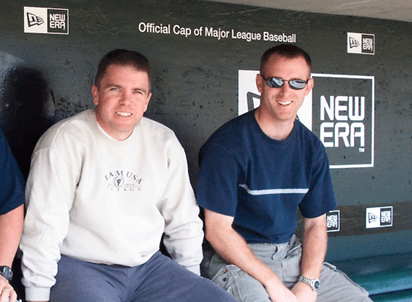
The Schlabachs talked about what it was like to be empty nesters and how despite all their worry about how their two kids would grow up in the military community, they have adjusted amazingly, and they think it is in part to always be taught at a young age to adapt to different situations. Col Schlabach encouraged younger missileers to give Minot a shot for what it is and not take the multitude of advice floating around out there from people who never lived here.
One of the most fascinating observations during the 91 MW Group Commander interviews was the candor in which each of them approached even the trickier topics, which is something this reporter appreciated immensely–and hopefully you readers do too!

